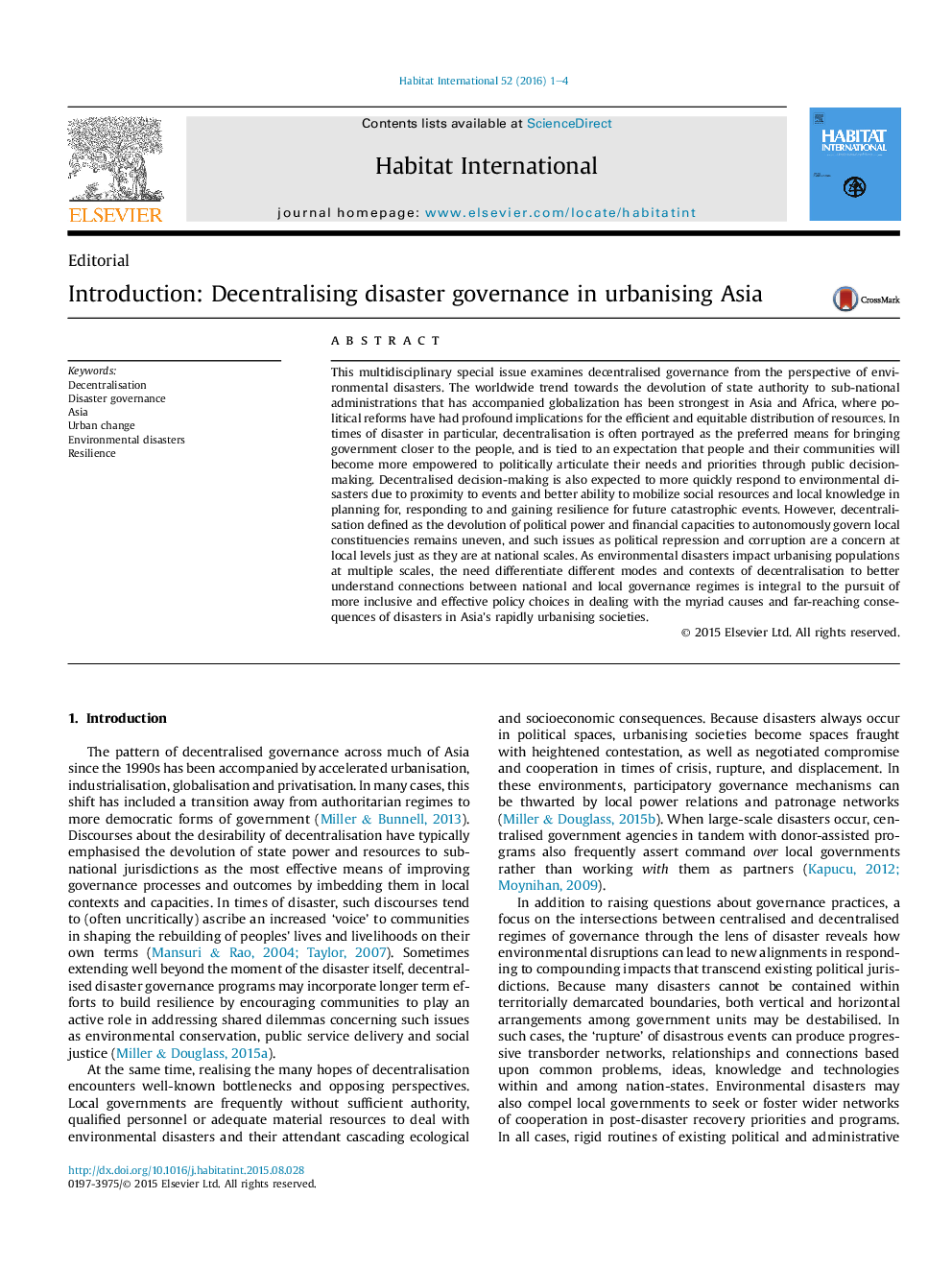| Article ID | Journal | Published Year | Pages | File Type |
|---|---|---|---|---|
| 1047719 | Habitat International | 2016 | 4 Pages |
•Urbanisation creates and produces more frequent and costly environmental disasters.•Building multi-scalar, multisector linkages is key to effective disaster governance.•Innovations in decentralised governance are diversifying disaster policy programs.•Theoretical aims of decentralisation to improve disaster governance remain partial.
This multidisciplinary special issue examines decentralised governance from the perspective of environmental disasters. The worldwide trend towards the devolution of state authority to sub-national administrations that has accompanied globalization has been strongest in Asia and Africa, where political reforms have had profound implications for the efficient and equitable distribution of resources. In times of disaster in particular, decentralisation is often portrayed as the preferred means for bringing government closer to the people, and is tied to an expectation that people and their communities will become more empowered to politically articulate their needs and priorities through public decision-making. Decentralised decision-making is also expected to more quickly respond to environmental disasters due to proximity to events and better ability to mobilize social resources and local knowledge in planning for, responding to and gaining resilience for future catastrophic events. However, decentralisation defined as the devolution of political power and financial capacities to autonomously govern local constituencies remains uneven, and such issues as political repression and corruption are a concern at local levels just as they are at national scales. As environmental disasters impact urbanising populations at multiple scales, the need differentiate different modes and contexts of decentralisation to better understand connections between national and local governance regimes is integral to the pursuit of more inclusive and effective policy choices in dealing with the myriad causes and far-reaching consequences of disasters in Asia's rapidly urbanising societies.
